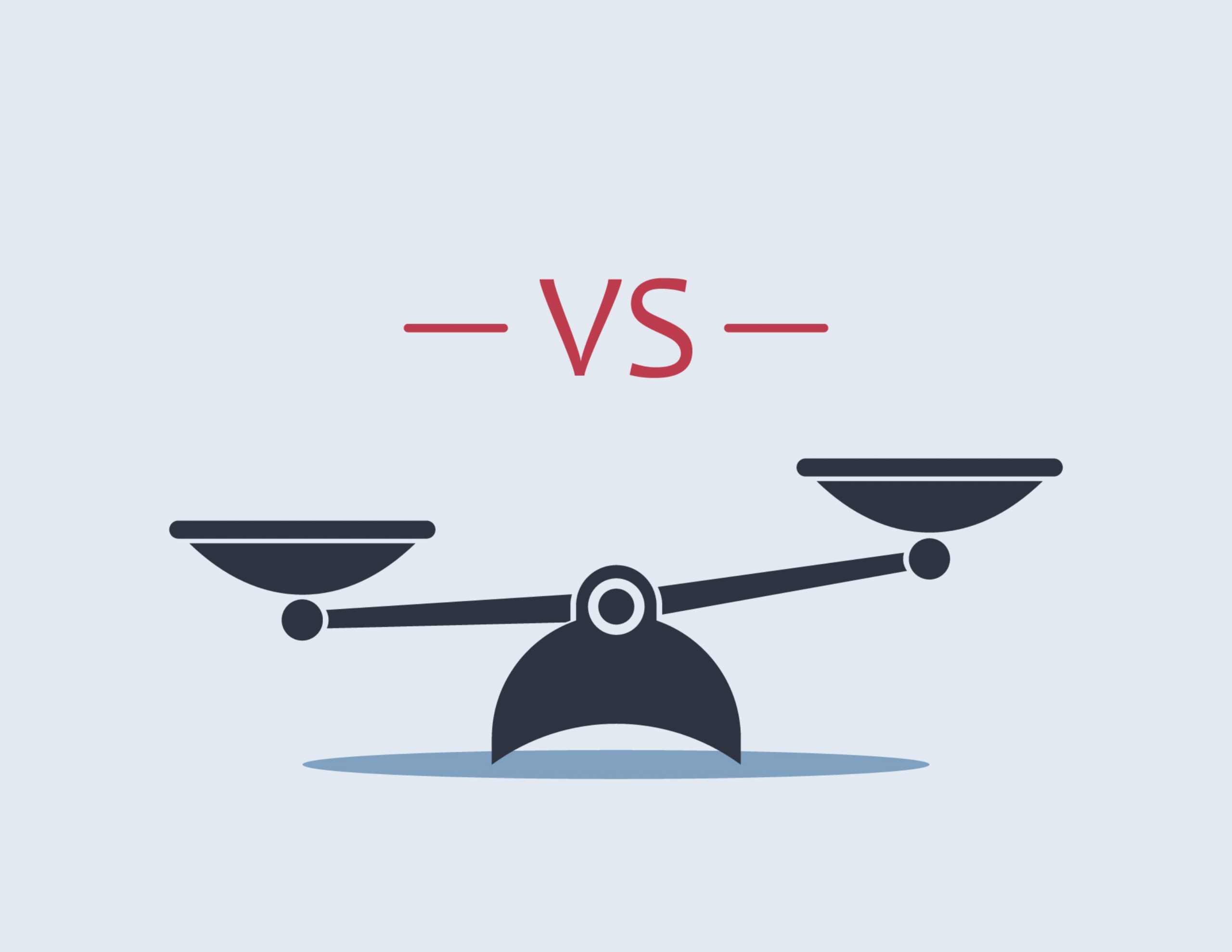
The Software-as-a-Service (SaaS) industry is rapidly growing, with more businesses adopting cloud-based software solutions to streamline their operations and increase efficiency. This represents a significant opportunity for investment, as the market is expected to continue expanding in the coming years.
The increasing adoption of public cloud services by enterprises is a key factor driving the growth of the SaaS market. Many companies are choosing SaaS solutions due to the cost savings compared to on-premises software deployment.
Moreover, the SaaS market is experiencing growth due to the benefits it offers in terms of cost savings, scalability, and customization despite challenges related to data security and privacy in public cloud services. The global SaaS market is estimated to hit $829.34 billion by 2031, growing at a 13.7% CAGR.
Given this backdrop, let’s compare two Software Application stocks, Adobe Inc. (ADBE) and Salesforce, Inc. (CRM), to understand which might be a better buy now.
The Case for Adobe Inc. Stock
Adobe Inc. (ADBE) operates as a diversified software company worldwide. It operates through three segments: Digital Media, Digital Experience, and Publishing and Advertising.
ADBE’s stock has declined 8.4% year-to-date but gained 15% over the past month to close the last trading session at $546.76.
On June 17, 2024, ADBE introduced groundbreaking AI advancements in Adobe Acrobat, enabling users to create and edit images within PDFs through text prompts with the help of Adobe Firefly. This made Acrobat the first PDF solution to offer generative image capabilities.
The new features in Acrobat AI Assistant allow seamless integration of a conversational engine in Reader and Acrobat workflows, enabling users to ask questions, gain insights, and create content across various document types. Additionally, ADBE announced improved meeting transcript functionalities in AI Assistant.
In terms of forward non-GAAP PEG, ADBE is trading at 1.69x, 14.8% lower than the industry average of 1.98x. On the other hand, the stock’s forward EV/Sales of 10.94x is 274.1% higher than the industry average of 2.92x.
ADBE’s trailing-12-month CAPEX/Sales of 1.06% is 53.2% lower than the industry average of 2.26%. However, its trailing-12-month EBIT margin and net income margin of 35.40% and 24.86% are 633.1% and 805.1% higher than the industry averages of 4.83% and 2.75%, respectively.
ADBE’s total revenue for the fiscal second quarter that ended May 31, 2024, increased 10.2% year-over-year to $5.31 billion. Moreover, its non-GAAP net income and net income per share stood at $2.02 billion and $4.48, up 12.8% and 14.6% from the year-ago quarter, respectively. However, as of May 31, 2024, ADBE’s total current liabilities amounted to $9.47 billion, compared to $8.25 billion as of December 1, 2023.
Analysts expect ADBE’s revenue and EPS for the quarter ending August 31, 2024, to increase 9.9% and 10.6% year-over-year to $5.37 billion and $4.53, respectively. The company surpassed consensus revenue and EPS estimates in each of the trailing four quarters.
ADBE’s mixed fundamentals are reflected in its POWR Ratings. It has an overall C rating, equating to Neutral in our proprietary rating system. The POWR Ratings are calculated by considering 118 distinct factors, with each factor weighted to an optimal degree.
It has a C grade for Growth, Momentum, Stability, and Sentiment. Within the C-rated Software Application industry, ADBE is ranked #47 out of 133 stocks. To see ADBE’s ratings for Value and Quality, click here.
The Case for Salesforce, Inc. Stock
Salesforce, Inc. (CRM) provides Customer Relationship Management technology that brings companies and customers together worldwide. Its service includes sales to store data, monitor leads and progress, forecast opportunities, and more, along with service that enables companies to deliver trusted and highly personalized customer support at scale.
CRM’s stock has gained 24.7% over the past nine to close the last trading session at $252.85.
On May 22, 2024, CRM expanded its Einstein Copilot capabilities by introducing new features for marketers and merchants. These features help businesses with daily marketing and merchandising tasks, in addition to its existing functionalities for sales and service.
CRM also revealed new tools for unifying business and commerce data, along with a new AI-powered personalization decision engine that helps companies personalize customer interactions at every touchpoint using data from any source.
In terms of forward EV/EBIT, CRM is trading at 18.80x, 8.3% lower than the industry average of 20.50x. Its forward non-GAAP PEG of 1.26x is 36.3% lower than the industry average of 1.98x. On the other hand, the stock’s forward EV/Sales of 6.11x is 108.9% higher than the industry average of 2.92x.
CRM’s trailing-12-month gross profit margin of 76% is 53.8% higher than the industry average of 49.43%. Likewise, its trailing-12-month Return on Common Equity and Return on Total Capital of 9.34% and 5.71% are 127.5% and 108.8% higher than the industry averages of 4.11% and 2.73%, respectively.
For the fiscal first quarter that ended April 30, 2024, CRM’s total revenues increased 10.7% year-over-year to $9.13 billion. Its free cash flow rose 43.2% from the year-ago quarter to $6.08 billion. For the same quarter, its non-GAAP net income stood at $2.41 billion and $2.44 per share, up 43.8% and 44.4% from the prior-year quarter, respectively.
Street expects CRM’s EPS and revenue for the quarter ending July 31, 2024, to increase 11.2% and 7.4% year-over-year to $2.36 and $9.24 billion, respectively. CRM surpassed Street EPS estimates in each of the trailing four quarters, which is impressive.
CRM’s robust prospects are reflected in its POWR Ratings. It has an overall B rating, equating to Buy in our proprietary rating system.
CRM has a B grade for Quality. It is ranked #23 within the same industry. Click here to see CRM’s Growth, Value, Momentum, Stability, and Sentiment ratings.
CRM vs. ADBE: Which SaaS Stock is a Better Investment?
The software industry is poised to witness robust growth due to the increasing integration of advanced technologies, growing demand for software solutions, rising consumer spending on IT services, and higher investments in digitization.
Both ADBE and CRM are well-positioned to capitalize on these positive industry trends. However, CRM's strong financials, solid profitability, and discounted valuation make it a better investment choice than ADBE.
Our research shows that the odds of success increase when one invests in stocks with an Overall Rating of Strong Buy or Buy. View all the top-rated stocks in the Software Application industry here.
What To Do Next?
Discover 10 widely held stocks that our proprietary model shows have tremendous downside potential. Please make sure none of these “death trap” stocks are lurking in your portfolio:
CRM shares were trading at $257.00 per share on Friday afternoon, up $4.15 (+1.64%). Year-to-date, CRM has declined -2.21%, versus a 15.37% rise in the benchmark S&P 500 index during the same period.
About the Author: Neha Panjwani

From her school days, Neha harbored a profound fascination for finance, a passion that steered her toward a career as an investment analyst following the completion of her bachelor's degree in commerce. Currently enrolled in the CFA program, Neha is dedicated to further enriching her comprehension of investment fundamentals. Neha's primary objective is to aid retail investors in discerning optimal investment opportunities by diligently evaluating crucial aspects of financial instruments, with a primary focus on stocks and ETFs. Her commitment lies in empowering individuals to make informed and strategic investment decisions in the dynamic world of finance.
Salesforce or Adobe: Which SaaS Leader Should You Invest In? StockNews.com






